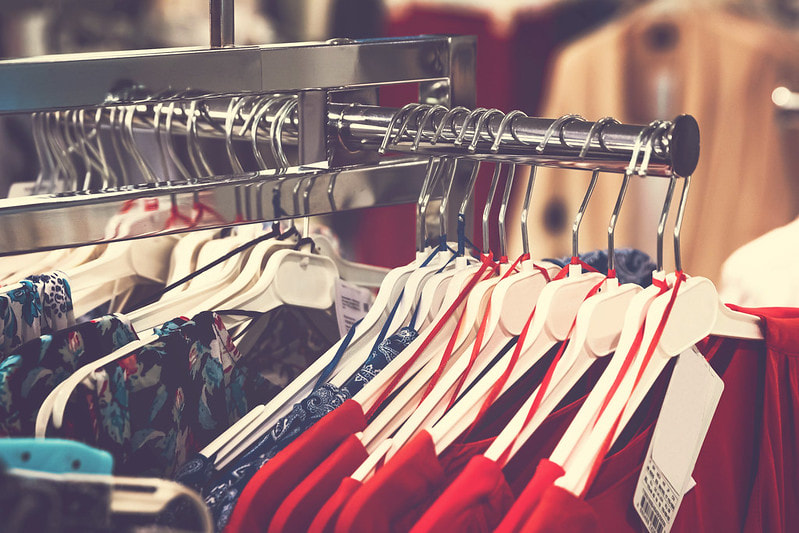|
I don't usually do new years resolutions, per se, but I do set themes for the year in terms of personal development. This year has been about two major themes, one of them being personal finance, and the other I will write about at a later date. In personal finance, my overarching goals have been to pay off my student loan and save up for buying a home. This means that I've had to re-examine everything that I spend money on and inadvertently tackle a huge societal theme: consumerism. Before I embark on a personal development theme, I investigate it through books, blogs, and yes, even instagram. I came across the Frugalwoods blog and her book on financial independence and simple living. Ms. Frugalwoods gave me the confidence that it's totally possible to drastically reduce your spending and still live a happy, if not even happier, life. I've been a fan of simple living and minimalism ever since I sold all of my things and moved to Europe with two suitcases. There's something freeing about not being tied down by your material possessions. So the first step in this process was getting rid of the unnecessary things that I had accumulated upon moving back to the US with the 30-day minimalism game (blog post here). I then came across the idea of a shopping ban, from Cait Flanders' book The Year of Less. I like challenges and I was ready to take this one on. Wow, it was much harder than I thought it would be. Over the last few months, I have come face to face with consumerism, how much it dominates our society, and my own personal habits and responses to it. ConsumerismWhat exactly is consumerism? According to investopedia, "Consumerism is the idea that increasing consumption of goods and services purchased in the market is always a desirable goal and that a person's wellbeing and happiness depends fundamentally on obtaining consumer goods and material possessions." In other words, consuming is good for the economy and our happiness depends on it. When your happiness depends on anything but yourself, like a relationship, alcohol, or material possessions, it is ultimately toxic. Dependence on something can provide you with temporary highs, but does not contribute to, and can even hinder, long-term happiness and fulfillment. I never thought that my shopping habits were an issue. I have always spent within my means, I don't have credit card debt, and I have fewer possessions than my peers. But the real skeletons in the closet started to come out when I tried my first shopping ban. Shopping ban, round #1The first shopping ban started earlier this year, where I gave up shopping for anything but groceries for a successful two months. The first thing that I noticed was the lack of boxes in my room. I don't have a car or a big mall/supermarket nearby so I mainly online shop. And, I tend to over-buy and return so that I can try things at home and take my pick. Therefore, I sometimes have quite a few boxes in my room of things I've received or am waiting to return. I coined the lack of boxes, #boxzero (like #inboxzero). After the "successful" two-month shopping ban, I allowed myself to buy things again, and buy I did. Pretty soon my room had boxes again. So was it really a successful shopping ban? I don't think so, I made up for what I didn't buy. This reminded me of the dieting and binge eating cycle, where you restrict something for a period of time but then binge on it after. So I gave up on the idea of a shopping ban, because it would just make me binge shop after. Shopping ban, round #2I spent a few weeks over the summer in Europe and without meaning to, I didn't buy anything besides groceries during that time. It reminded me of when I lived in Europe a few years ago, and I realized that the U.S. really is a consumerist society. So, what is it about Europe that's different? Even when you walk down the main streets of Vienna, Bucharest, Zurich, etc, they are filled with stores, both local and the mega fast fashion chains. Cait Flanders' book is all about finding the triggers and habits that lead you to shop for things you don't necessarily need. Examining my time in Europe vs the U.S., here are some of my own habits:
I found that when I travel or live outside of the U.S., these triggers aren't really present and so my shopping habits don't arise. However, when I came back this fall, the triggers came back, and so did the boxes. I made a couple of orders for new clothes and a halloween costume, and as if knowing that I was struggling with keeping up with shopping bans, the boxes got stolen off of our front porch. Not once, but twice, when I re-ordered the same things again to replace them. Spending hours on the phone trying to get my money back and re-order these things for the third time was my "rock bottom" in this whole shopping ban process and why I call it a failure. In the end, we learn from our failures and I've embarked on mindful shopping instead of outright shopping bans. Lasting mindful shoppingMuch like restrictive dieting, the shopping ban per se didn't work for me. However, not shopping at all did help me realize what my triggers and habits for shopping are, as listed above. So now what I do, is before buying anything, I ask myself these questions:
3 Comments
11/17/2022 03:50:31 am
Full way exactly. Modern today could child whatever program.
Reply
Manish Tomar
6/3/2023 11:16:54 pm
Your blog post was engaging and inspiring. I found the content to be motivating, and it encouraged me to take action and apply the insights in my own life. To gain further knowledge on this topic, <a href="https://myshopprime.com/trending.products/bvp3nc7" target="_blank">click here</a>.
Reply
Leave a Reply. |
Lenka KollarEcomodernist and nuclear engineer inspired by nature. Archives
May 2020
|
Photo used under Creative Commons from Artem Beliaikin



 RSS Feed
RSS Feed
